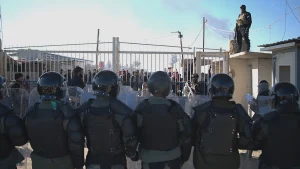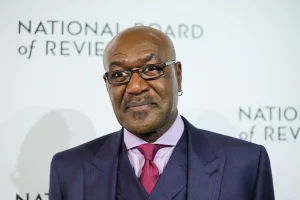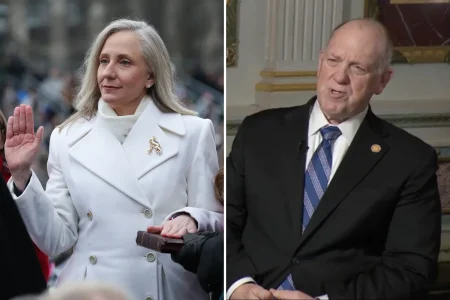Belarus Extends Olive Branch to Trump Administration, Signaling Potential Diplomatic Shift
In a significant diplomatic gesture that has caught the attention of international observers, Belarus has extended a formal invitation to the Trump administration, marking what many analysts view as a calculated attempt by the Eastern European nation to recalibrate its relationship with Washington. This overture comes at a time when Belarus’s long-serving authoritarian leader has been actively seeking to improve ties with the United States, finding the current administration notably receptive to such diplomatic initiatives. The timing of this invitation raises important questions about shifting geopolitical dynamics in Eastern Europe and what it might signal for future U.S.-Belarus relations.
A Strategic Diplomatic Maneuver in an Evolving Geopolitical Landscape
The invitation from Minsk represents more than a routine diplomatic formality; it emerges against a backdrop of complex regional politics where Belarus has traditionally maintained close ties with Russia while periodically attempting to create space for independent foreign policy initiatives. President Alexander Lukashenko, who has governed Belarus with an iron grip since 1994, has historically portrayed himself as a staunch ally of Moscow. However, experts note that recent years have witnessed subtle but meaningful attempts by Lukashenko to diversify his international relationships, particularly as tensions with the Kremlin have occasionally surfaced over energy pricing and questions of national sovereignty.
“What we’re witnessing is classic hedging behavior by a smaller power caught between competing spheres of influence,” explains Dr. Helena Markovic, Eastern European policy expert at the Brookings Institution. “Lukashenko is attempting to leverage improved relations with Washington as a counterbalance to Moscow’s influence, without fundamentally altering his authoritarian governance model at home.” This diplomatic balancing act reflects the challenging position Belarus occupies—seeking to maintain its traditional security relationships while creating economic opportunities that might alleviate its significant dependence on Russia.
The Trump Administration’s Receptiveness Marks a Policy Departure
The Trump administration’s apparent willingness to engage with Belarus represents a notable shift from previous U.S. approaches toward the country often described as “Europe’s last dictatorship.” Since the early 2000s, American policy has generally maintained a critical stance toward Belarus, implementing various sanctions in response to human rights concerns, electoral irregularities, and democratic backsliding. However, the current administration has demonstrated a different approach to engagement with authoritarian regimes globally, often prioritizing transactional relationships and strategic interests over traditional human rights concerns.
State Department sources, speaking on condition of anonymity due to the sensitive nature of ongoing diplomatic discussions, indicate that the administration sees potential value in opening channels with Belarus. “There’s a recognition that complete isolation hasn’t produced the desired changes in Belarusian governance, and that limited engagement might create leverage for positive developments,” one senior official noted. This pragmatic approach aligns with broader Trump administration foreign policy tendencies that have favored bilateral negotiations and direct leader-to-leader communications over multilateral frameworks. Critics, however, warn that such engagement without firm conditions risks legitimizing authoritarian practices and undermining democracy promotion efforts in the region.
Economic Considerations Underpin Diplomatic Overtures
Beneath the diplomatic choreography lie substantial economic motivations for both nations. Belarus, facing persistent economic challenges including high external debt, currency instability, and an overreliance on subsidized Russian energy, sees improved relations with Western powers as a potential pathway to economic diversification and investment. The country’s state-dominated economy has struggled to achieve sustainable growth, creating domestic pressures that have occasionally threatened Lukashenko’s political position.
For the American side, Belarus represents a modest but not insignificant market of nearly 10 million consumers, as well as potential opportunities in sectors ranging from information technology to agricultural equipment. “Belarus has developed niche capabilities in several high-tech sectors, including software development and specialized manufacturing,” notes Mikhail Kovalev, economist at the Peterson Institute for International Economics. “American companies see untapped commercial potential that has been constrained by political considerations.” Trade between the two countries remains limited—approximately $700 million annually—but both sides appear to see room for substantial growth if political relations continue to thaw.
Human Rights Concerns Cast Shadows Over Diplomatic Engagement
Despite the diplomatic momentum, serious human rights concerns continue to complicate U.S.-Belarus relations. Human rights organizations consistently rank Belarus among the most repressive states in Europe, citing restrictions on press freedom, persecution of political opposition figures, and the absence of free and fair elections. The invitation comes at a particularly sensitive time, as Belarus prepares for presidential elections later this year—contests that have historically been marred by irregularities and crackdowns on opposition movements.
“The administration faces a delicate balancing act,” observes Sarah Mendelsohn, senior fellow at Freedom House. “Engaging with Belarus might create opportunities to advocate for improvements in human rights conditions, but it also risks conveying tacit approval of Lukashenko’s authoritarian practices.” Congressional leaders from both parties have expressed skepticism about deepening ties without meaningful progress on human rights and democratic reforms. Senator Chris Murphy (D-CT), a member of the Foreign Relations Committee, recently stated, “Any diplomatic engagement must be accompanied by clear benchmarks for improvements in Belarus’s human rights record and electoral processes. We cannot sacrifice our values for short-term strategic gains.”
Regional Implications and the Path Forward
The potential warming of U.S.-Belarus relations has not gone unnoticed in regional capitals, particularly Moscow. Russia has traditionally viewed Belarus as part of its strategic buffer zone and “near abroad”—areas where it claims special interests and influence. Any significant rapprochement between Minsk and Washington would likely trigger concerns in the Kremlin about Western encroachment into what it considers its sphere of influence. Poland, Lithuania, and Ukraine are also watching developments closely, as these neighboring states have direct security and economic interests affected by Belarus’s international positioning.
Looking ahead, both sides face significant challenges in translating diplomatic gestures into substantive relationship improvements. Belarus must navigate the difficult terrain of opening to the West without triggering Russian countermeasures, while the United States must determine whether limited engagement with an authoritarian regime can advance American interests without compromising core democratic values. “The invitation represents an opening, not a breakthrough,” cautions former U.S. Ambassador to Belarus David Swartz. “Sustainable improvement in relations will require patient diplomacy, realistic expectations, and a clear-eyed assessment of both opportunities and risks.” As the Trump administration considers its response to Belarus’s overture, stakeholders across the region and beyond will be watching closely for signals about America’s evolving approach to Eastern Europe and its commitment to democracy promotion in a complex geopolitical environment.







